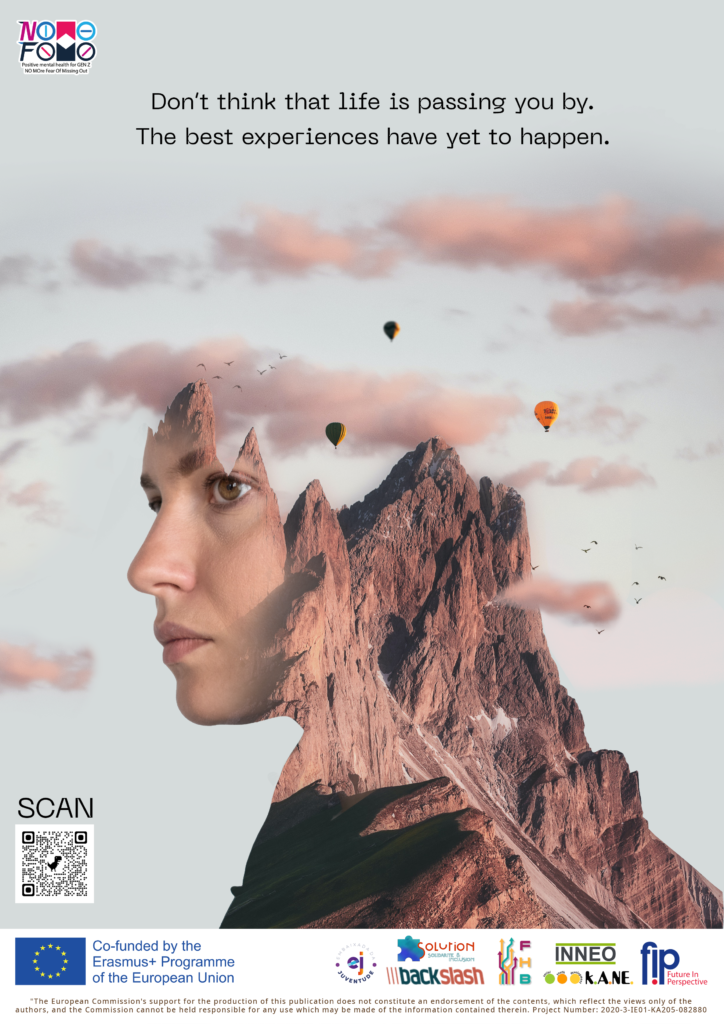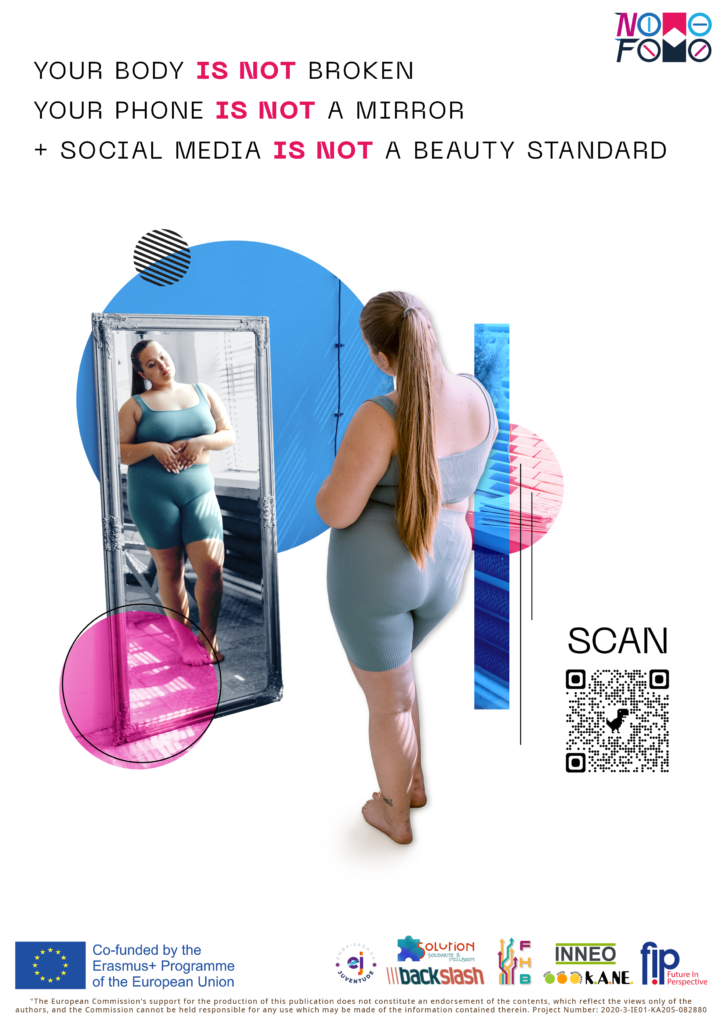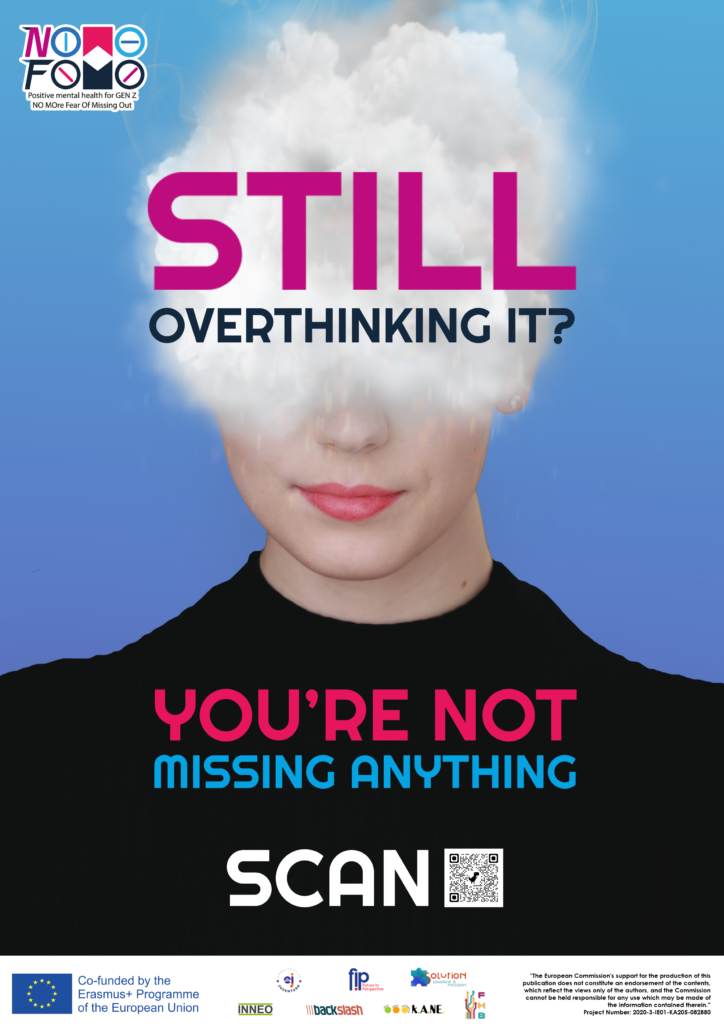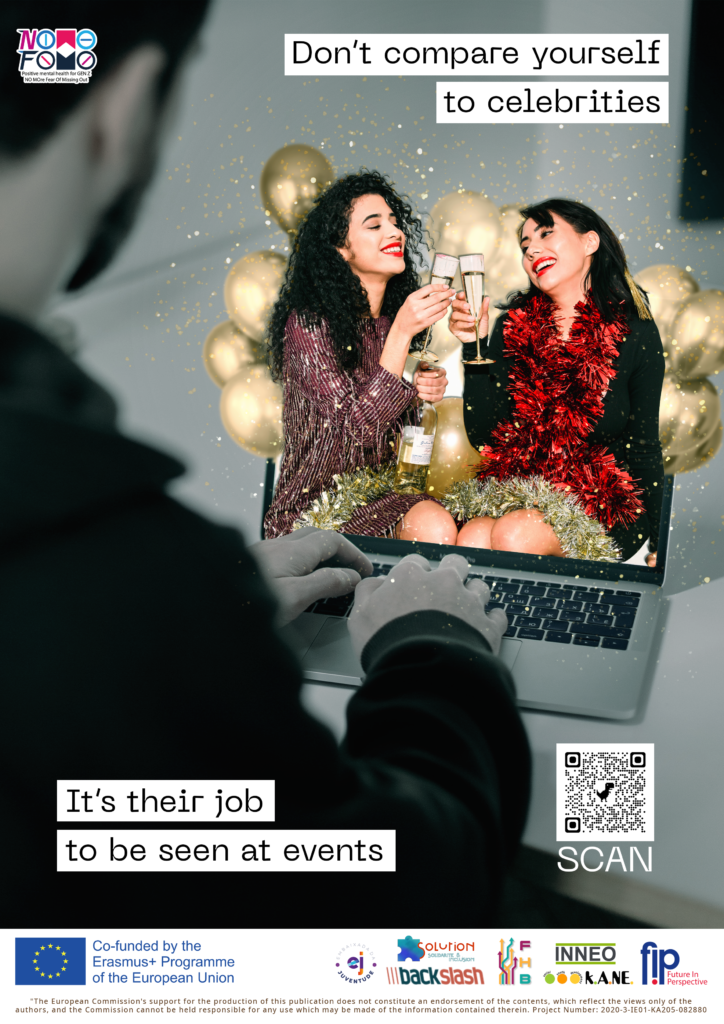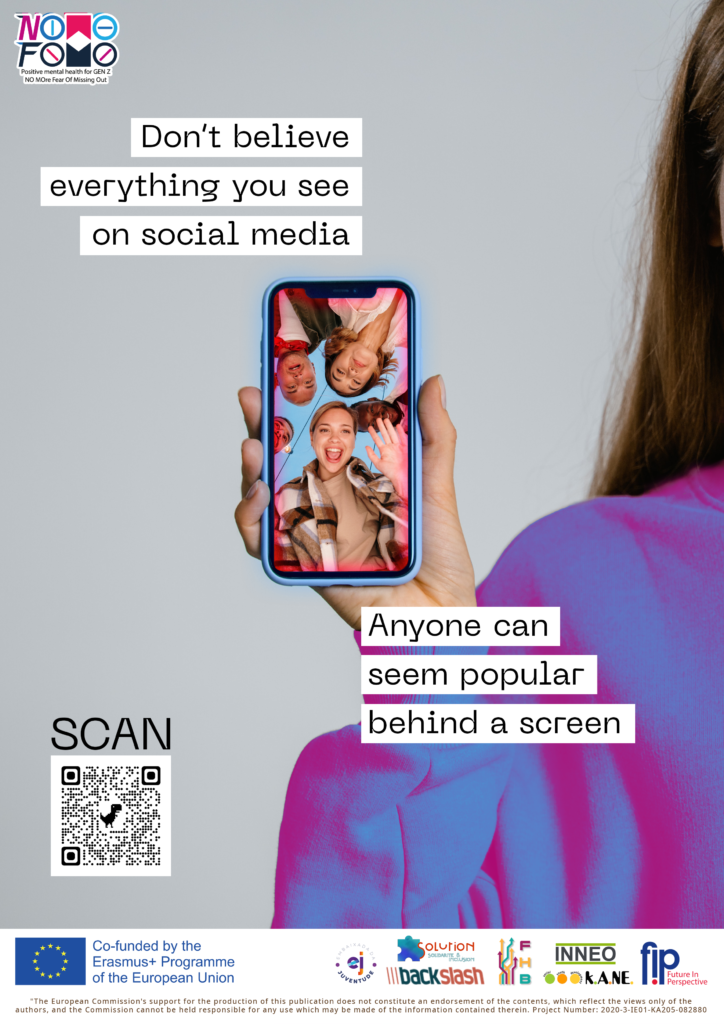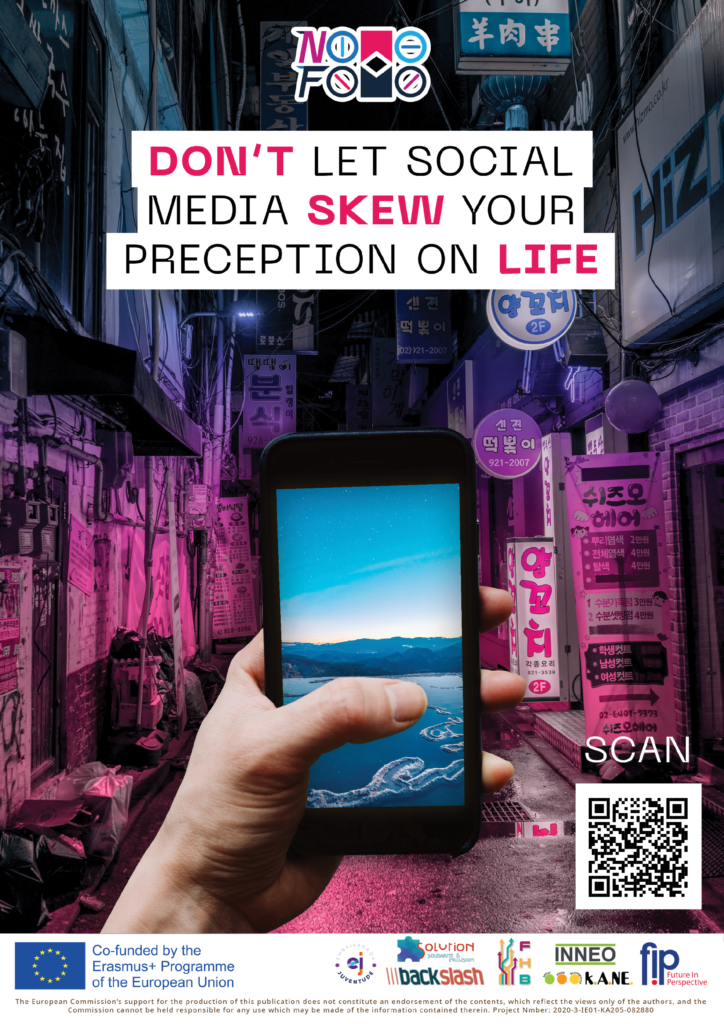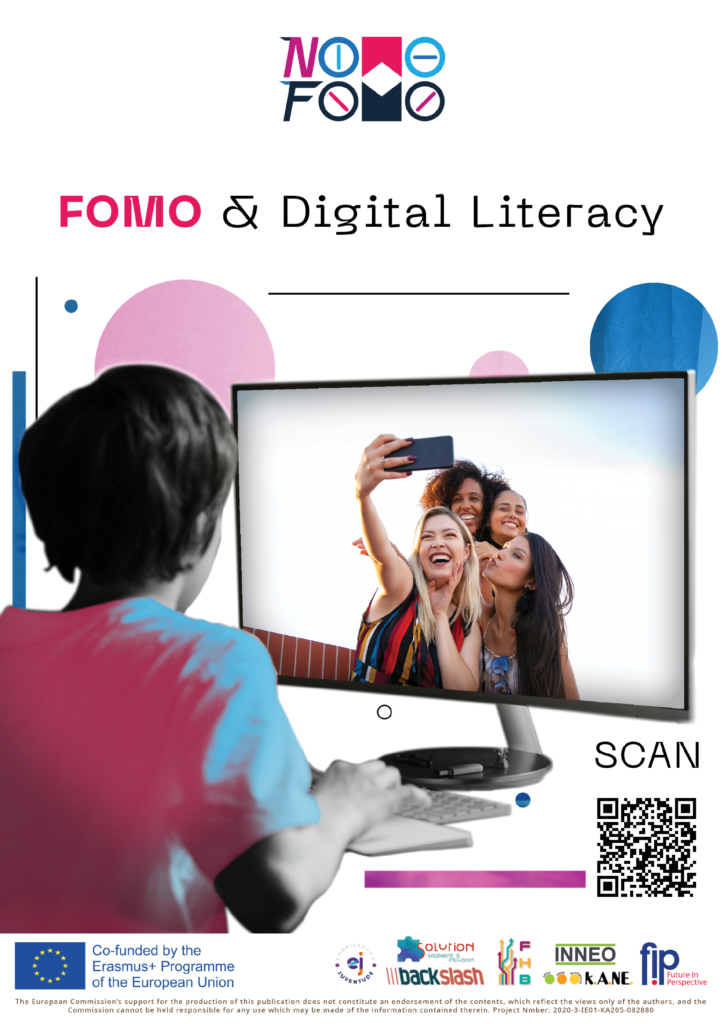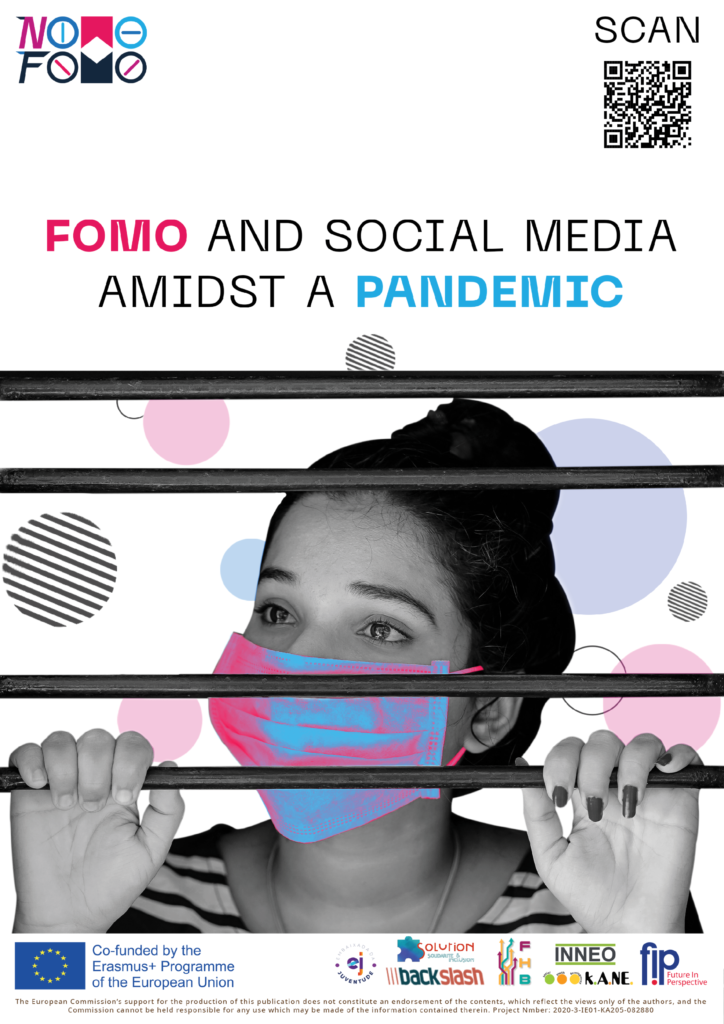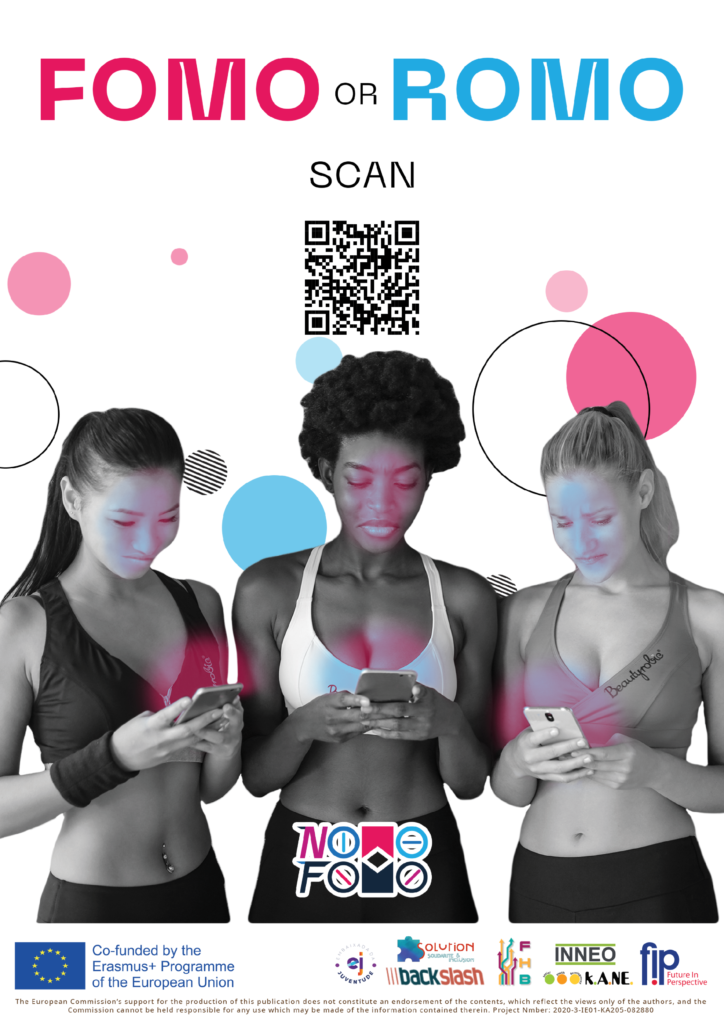
WELCOME TO THE
NOMO MOOC!
Now that you are here, your first questions are most likely what is NOMO? And what is a MOOC?
WELCOME TO THE
NOMO FOMO MOOC!
Now that you are here, your first questions are most likely what is NOMO? And what is a MOOC?
What is a MOOC?
What is a MOOC?
Now, what is a MOOC? MOOC stands for Massive Open Online Course; by this we mean that the courses and educational materials presented on this platform are delivered online and accessible to everyone. On a MOOC you will typically find video resources, tip-sheets, reading materials, assessments and quizzes and a discussion forum. And the NOMO MOOC is no exception – only that here you will also find modules and handbooks for young people and youth workers, and a suite of innovative Interactive Infographics! To find out more about what we have in store for you on our MOOC, check out the individual links to our training materials that are presented throughout the platform.
Now, what is a MOOC? MOOC stands for Massive Open Online Course; by this we mean that the courses and educational materials presented on this platform are delivered online and accessible to everyone. On a MOOC you will typically find video resources, tip-sheets, reading materials, assessments and quizzes and a discussion forum. And the NOMO MOOC is no exception – only that here you will also find modules and handbooks for young people and youth workers, and a suite of innovative Interactive Infographics! To find out more about what we have in store for you on our MOOC, check out the individual links to our training materials that are presented throughout the platform.
What is NOMO FOMO?
What is NOMO FOMO?
FOMO stands for the Fear Of Missing Out, and it a common source of anxiety, especially for young people in the age of social media. The NOMO FOMO project aims to provide a range of education and support materials for young people so that they can better understand the phenomenon that is FOMO and can take steps to protect their mental health. Furthermore, through this project, our aim is to support young people in our communities to become peer youth leaders in the promotion of positive mental health. To find out more about this project, please visit our project website:
FOMO stands for the Fear Of Missing Out, and it a common source of anxiety, especially for young people in the age of social media. The NOMO FOMO project aims to provide a range of education and support materials for young people so that they can better understand the phenomenon that is FOMO and can take steps to protect their mental health. Furthermore, through this project, our aim is to support young people in our communities to become peer youth leaders in the promotion of positive mental health. To find out more about this project, please visit our project website:
IO1
Interactive Infographics
The NOMO FOMO project addresses the concept of FOMO and promotes positive mental health through a range of interactive infographics. Interactive infographics are graphic posters that are interactive! By this we mean that these posters contain QR codes and links, to bring young people, youth workers and peer leaders to a series of educational videos, exercises, games, and quizzes, that help them to raise their awareness on the impact of social media in their lives to promote positive mental health.
IO1
Interactive Infographics
The NOMO FOMO project addresses the concept of FOMO and promotes positive mental health through a range of interactive infographics. Interactive infographics are graphic posters that are interactive! By this we mean that these posters contain QR codes and links, to bring young people, youth workers and peer leaders to a series of educational videos, exercises, games, and quizzes, that help them to raise their awareness on the impact of social media in their lives to promote positive mental health.
Click an Infographic to view the corresponding resources:
IO2
In Service Training Programme
This comprehensive training programme supports front-line youth workers to work in online environments and utilise the resources presented in the interactive infographics. This helps youth-workers to build their skills in unpacking the concept of “FOMO” and understand how to encourage young people to get involved in the NOMO FOMO educational resources. This training also helps youth workers to develop their digital skills and adapt their facilitation skills and youth group activities to include the use of the Interactive Infographics and the NOMO FOMO online tools.

IO2
In-service Training Programme
The NOMO FOMO In-service Training Programme comprises 60-hours of learning, and focusses on building the skills of youth workers in 4 distinct areas as follows:
(1) Training to address 12 of the key components of FOMO – linked to the Interactive Infographics.
(2) Supporting youth workers to develop their digital media skills to enable them produce videos, quizzes, digital breakouts, WebQuests, etc. using open-source software programmes.
(3) Building the competence and confidence of youth workers to work in online learning environments.
(4) Supporting youth workers to integrate the Interactive Infographics and other digital resources developed by NOMO FOMO so that they can practice safe digital youth work, while also supporting young people to manage their mental well-being.
These training modules are presented in a handbook which included 40-hours of lesson plans and workshops for face-to-face or online learning. These modules are supported by 5 ‘how-to-videos’ which will support educators to develop their digital skills as part of their self-directed learning, and a series of 5 accompanying activities which will provide learning actions for youth workers so that they can apply what they have learned to their own youth work practice.
IO3
Peer Leadership Training Programme
The peer leadership programme builds leaders engaged in challenging online and social media environments. This programme works directly with young people to empower them to become peer leaders in promoting positive mental health. It provides them with innovative interactive materials in the real and virtual world. The NOMO FOMO interactive infographics can extend their knowledge on key themes and therefore support peer leaders to help their peers to deal with the different elements of FOMO and their mental health.
IO3
Peer Leadership Training
The aim of this peer leadership training is to provide young people in our communities with training that will support them to be mental health advisors and promoters among their peer group.
This active learning curriculum comprises four modules:
(1) Understanding the Different Components of FOMO
(2) Mental Health Promotion
(3) Facilitating Peer Workshops
(4) Using Social Media to Promote Positive Mental Health
Through completing this 40-hour programme, young people will be prepared to take on a leadership role in supporting their peers to maintain their mental and emotional well-being, especially during these challenging times.
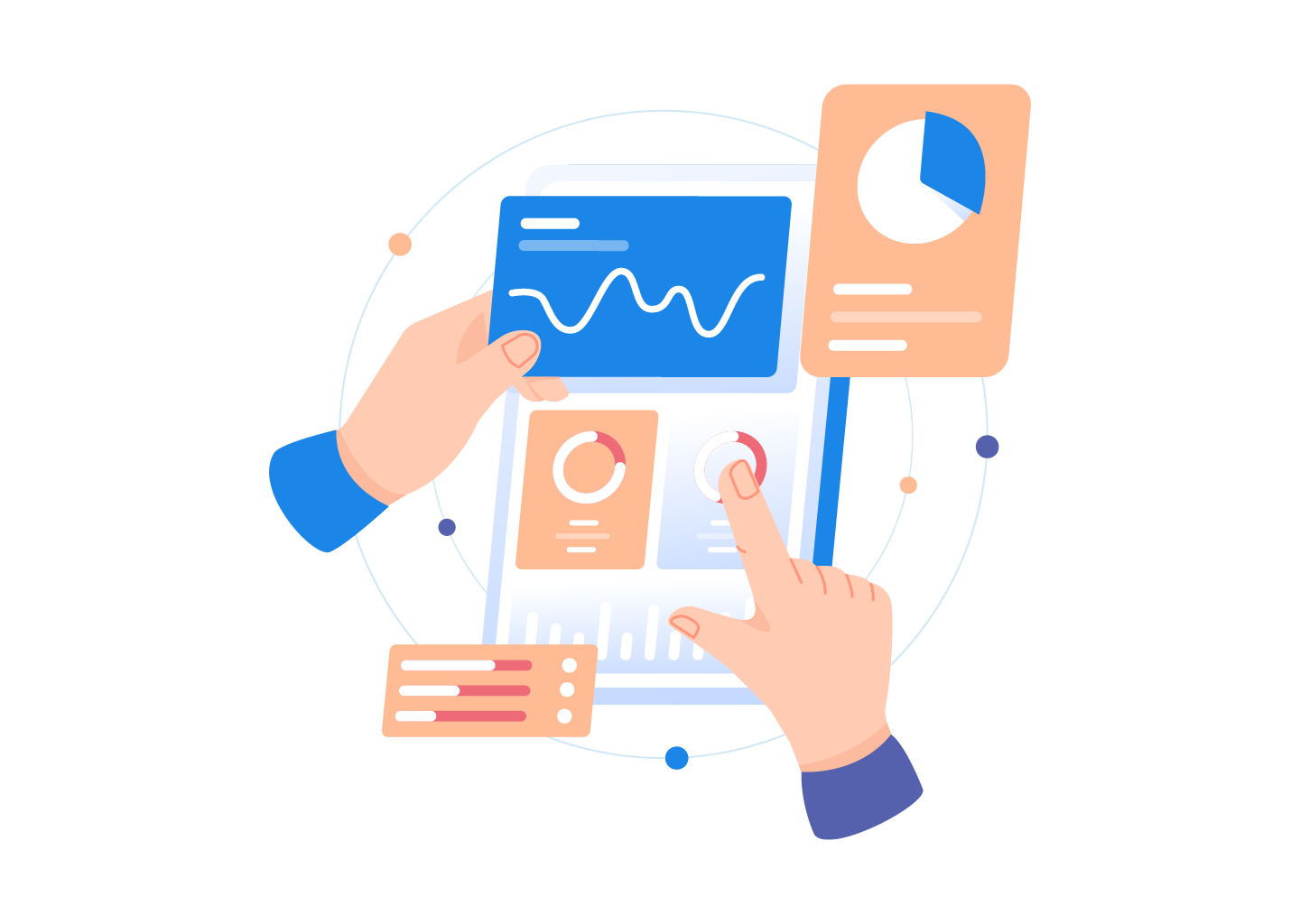
IO4
Smartfeed Training Programme
As you will notice, many of the themes explored in this MOOC relate to the effects of social media on our mental health and well-being. While it is good to raise awareness of this topic, we also need to go further, and support youth workers and young people by providing them with supports and tools that will allow them to take control of their social media newsfeeds, and mitigate the impact that social media has on their sense of well-being, their self-image and their self-esteem.
The Smartfeed programme comprises a series of 6 videos and accompanying tip sheets, which equip youth workers and young people with a toolbox of resources to help them evolve from passive social media users into active, selective ones.
IO4
Smartfeed Training Programme
This training programme equips youth workers and young people with an array of resources to support them to become active users of social media, rather than passive and selective users. Through a series of video tutorials, tips sheets and podcasts, youth workers and young people will understand how to positively navigate technology even with its associated risks. The purpose of this training is to support young people with tips and resources that will help them to take control over their social media lives and identities.
Community of Practice
As part of our work on developing this MOOC platform, and in addition to providing young people, youth workers, parents, families and members of our communities with access to these innovative educational materials, we also want to provide a space where youth workers, young people, families and other stakeholders can come together, share resources and stories, and contribute to supporting the mental well-being of young people across Europe.
This is what we call our Community of Practice. This will provide networking opportunities for anyone with an interest in promoting youth mental health.
Community of Practice
As part of our work on developing this MOOC platform, and in addition to providing young people, youth workers, parents, families and members of our communities with access to these innovative educational materials, we also want to provide a space where youth workers, young people, families and other stakeholders can come together, share resources and stories, and contribute to supporting the mental well-being of young people across Europe.
This is what we call our Community of Practice. This will provide networking opportunities for anyone with an interest in promoting youth mental health.
The Community of Practice will be officially launched during Autumn 2022. However, if you are interested in getting involved in the project before then, please find us and message us through our Facebook page:

The European Commission’s support for the production of this publication does not constitute an endorsement of the contents, which reflect the views only of the authors, and the Commission cannot be held responsible for any use which may be made of the information contained therein.
Project Number : 2020-3-IE01-KA205-082880

